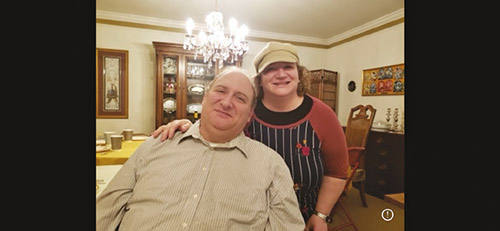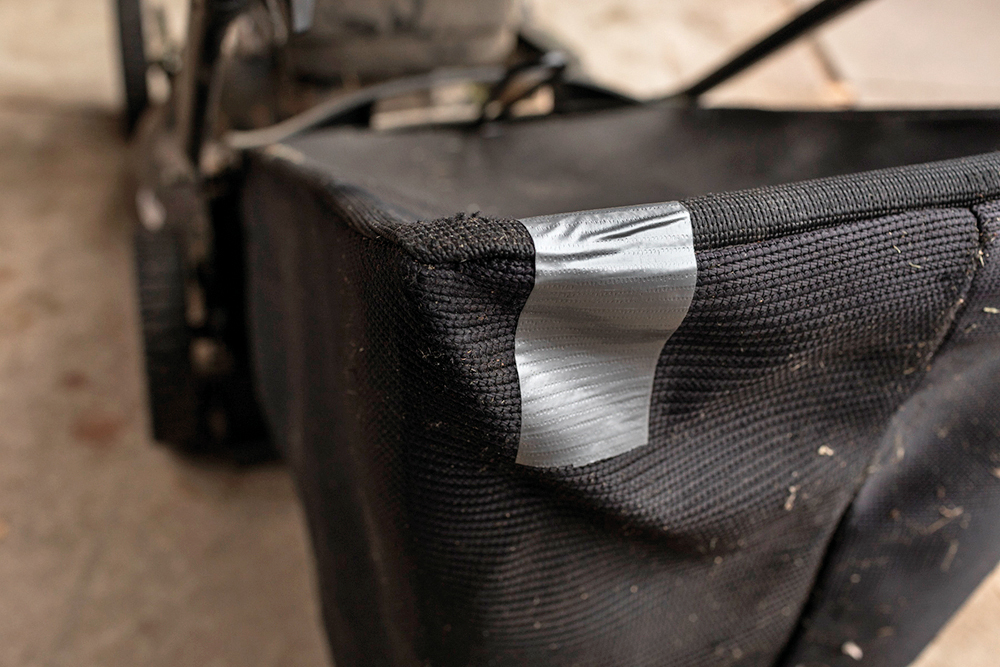
When I first learned late this summer that my brother was gravely ill and declining, I briefly hesitated to call my rabbis and friends because they already do so much for me and my family, on a daily and weekly basis. But then I knew I needed them urgently and would be needing more from them imminently. I made the calls and got immediate pledges of support. In what I have come to know as “typical Bergenfield unfathomable chesed,” they said I should have told them sooner.
My big brother, Robert Book, z”l, was niftar (passed away) on the first day of Chol Hamoed Sukkot, on Wednesday morning, October 12. When I first heard the news I didn’t even know what mourning laws applied to the situation: where to go, how to act, what to wear, what to eat, whether I could wash. Was there shiva? Is shiva canceled? Will he be buried today, tomorrow or after chag?
Rabbi Zvi Sobolofsky, Rabbi Yaakov Neuburger, Rebbetzin Peshi Neuburger and multiple others sprang into action. A few conference calls with my family and a couple of rabbinic consults later, I understood that since I was not accompanying the meis (body) to Israel for burial, I would tear kriah (a garment, worn during shiva) and simply put it away, as there is no mourning allowed on a chag, though burial is allowed. There were different rules applied for those attending the burial. Chol Hamoed is still a chag and on a chag one may not mourn.
My sister-in-law, my sister, my brother’s daughter and two of his three sons flew to Israel on Wednesday night, joining his other son who is in the IDF. I and the three remaining mourners stayed in the U.S. Travel for my Los Angeles-based mom and brother to Israel, much less my sister in Oklahoma City, would have been impossible. Those of us left behind were able to watch the kevura (burial) in Beit Shemesh (at 4 a.m. my time!) on Friday morning. Extended eulogies are not allowed on Chol Hamoed, but my sister-in-law and her children spoke emotionally and beautifully, though briefly.
And on Friday afternoon, there was still no shiva. Instead of sukkah hopping with my kids that Shabbat and watching them collect candy and dance on Simchat Torah, I continued learning Sefer Iyov (the Book of Job) in my house with my loyal Tanach study group (we have been learning the sefer for over a year), and sat on my pandemic-era porch and talked to a few friends.
As I sat, *not* sitting shiva, I recalled this verse from Tehillim:
“Let me dwell in Your tent forever; let me take refuge in the shelter of Your wings.” (Psalm 61:2-4)
So I waited, and dwelled, in Bergenfield. Taking refuge in the shelter of the wings of this community. Trusting the process with as much trust in Hashem as I could muster. Sort of like not crying, but thinking about crying later.
One of the chevra kadisha organizations of my two wonderful shuls helped us prepare the house for shiva after Simchat Torah, and arranged minyanim for my brother Lewis when he arrived with my mom from Los Angeles. Then, finally, we were allowed to sit shiva. A full week after my brother had died. But shiva lasted only for six days, not seven; because Simchat Torah is a rabbinic holiday, not the full-fledged Sukkot.
On our first day of shiva, Rabbi Sobolofsky gave a short vort between Mincha and Maariv. Every time he has ever spoken in my house, no matter if I have heard the Torah or not, I marvel at how he knows the exact right phrase to say at the exact moment it is needed. I felt blessed when he picked a classic: Kohelet 3:1-4:
Everything has an appointed season, and there is a time for every matter under the heaven.
A time to give birth and a time to die; a time to plant and a time to uproot that which is planted.
A time to kill and a time to heal; a time to break and a time to build.
A time to weep and a time to laugh; a time of grieving and a time of dancing.
I sat shiva for two days with my mom and brother, and on Friday, I stayed in Bergenfield while they went to spend Shabbat with the rest of the mourners who were, finally, returning from Israel or assembling in Fairfax, Virginia, where my brother lived and everyone was converging. I could not get to Fairfax until Sunday.
I realized later that the 90 or more people who visited me on Wednesday and Thursday made my mother proud of me. She shepped nachas at the loving friends who arrived from my office, from my neighborhood, quite a few people who I have worked with through specific articles at The Jewish Link who have become dear and essential friends; and people who I have met only a few times, but formed a bond with over a single article or shared experience. I even had a person come whose face I had never before seen; a lovely woman with whom I had only ever interacted through a single email, who came because she reads my articles in this newspaper (and seems to like them … Thank you!). It was also amazing to meet chavrusas (learning partners) of my husband from YU, whom I had never met in person, and parents of kids who go to school with my kids. It was such a bracha for my mom to meet and receive comfort from every person who came and called and texted.
Then on Friday, as my mom and brother departed in a Lyft to their rental car, she told me later she looked back at me and worried. She couldn’t imagine who else was left to sit shiva with me.
But she does not know this community as I do.
On Friday, our own Rabbi Jachter came to tell me about how my brother helped build the Fairfax Eruv, an eruv which our “Walking the Line” columnist checks annually and walked with my brother during the summer of 2020. Shimon Oppenheim came and told me how he met my brother through the small world of Jewish scouting, remembering that there are many Jewish Eagle Scouts from Virginia because of the troop my brother started. In addition to more neighbors, friends from Livingston, Manhattan, Long Island and elsewhere came, as well as my other rebbeim.
Then, in the afternoon, the doorbell rang. (Right away, you might guess this person doesn’t regularly visit shiva houses, because it is customary to just walk right into shiva houses.)
My friend Lauren flew in from Munich, Germany. She said, “You are my best friend. How could I not come to give you a hug?”
We cried, then we laughed, then the floodgates opened and we laughed while crying. Then I cried the rest of the afternoon.
And on Shabbat, I rested. I rested in the shelter of His wings.
I could go on and on with the stories of these shiva visits, but then the paper would be filled up and Jill and Nina and Michal and Ellie and all our other wonderful writers would not have any space for their articles. Or Jen would tell me to trim 500 words.
I will just end by saying that this community is blessed not just by the people in it, the Torah we study, the rabbis and teachers who guide us, but by how virtually every person I know in this community hastens to perform the mitzvah of comforting a mourner. They literally run/walk/drive/fly to shiva houses to comfort mourners. I know because I have done it too. I have not gone enough or every time to every shiva; but that’s okay too, because one never knows what is going on in other people’s lives. That’s what phones are for.
But it makes me grateful to have these people in my world; to share the planet I am blessed to walk upon; this shelter in which I rest. You have comforted me and my family and I am grateful to Hashem for putting me here. With you. Every single person who walked through my door, wrote a text, recorded a voice note, dialed a phone, sent an email or messaged me on social media. I am grateful for you.
To end with a joke my brother would have loved, by Steve Martin in his classic 1987 movie “Roxanne”:
“I’d rather be with you people than the finest people in the world!”
Baruch dayan emet. May we always only celebrate simchas.
By Elizabeth Kratz













